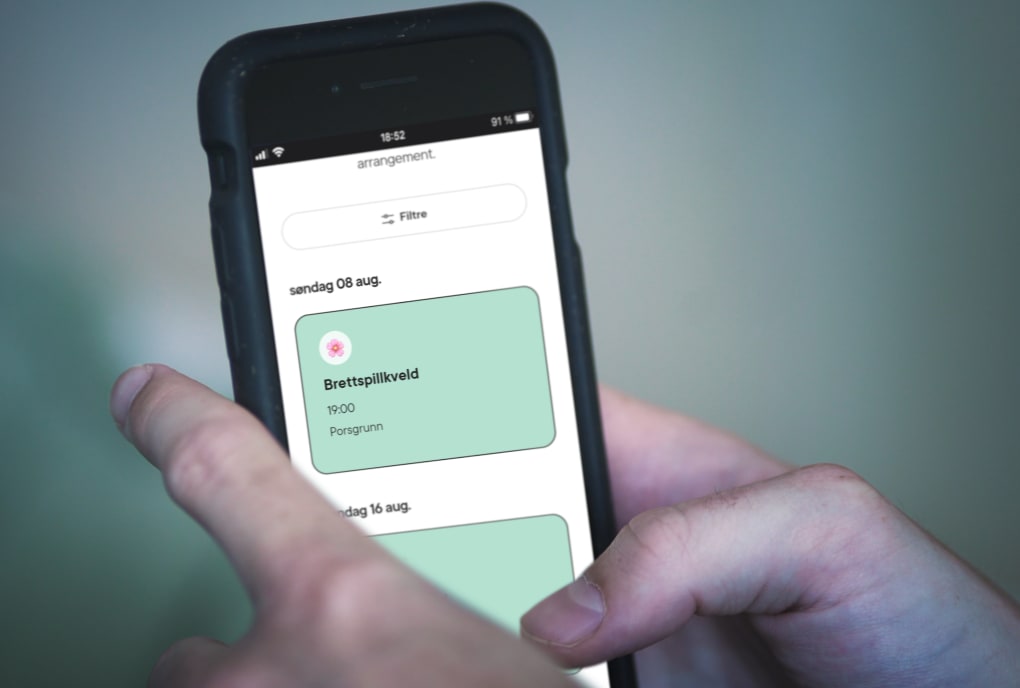Are you unsure how to find new friends at the university? Get five good advice on how get good relationships and community during your studies.
Good relationships are important for your mental health
One of the world’s longest studies, “The Harvard Study of Adult Development” shows that happiness doesn’t necessarily involve wealth, fame or hard work, but rather it involves social support and good relationships. Social relations like family, friends, fellow students, colleagues and neighbors play an important role in affecting our mental health because they all provide us with a sense of belonging. As human beings we have a basic need to belong and be part of a community.
Concrete advice to promote mental health
ABC is a model outlining three very simple principles in promoting and looking after your mental health. A involves to ACT, to do something active. B involves BELONGING, to do something with someone and C involves COMMITTING, to do something meaningful to you and to set goals in order to help you keep you on a steady course.
Quality over quantity
Even though good and close relationships lead to a better quality of life, it’s important to point out that it doesn’t matter how many friends you might have. It’s the quality that counts, not the quantity. The most important thing is to have someone to care for and with. Good friends make good periods in life better, and as a result difficult times easier to handle.
Moving to a new place often involves letting go of important network and social supportfrom family and friends. However, new networks can be formed at university, both in student accommodation and on campus.
Here’s five suggestions that can result in new friendships and network in your student life:
1. Keep track of what’s going on in the Student Sørøst-Calendar
When we get engaged in social activities the chance of finding new friendships increases. Have a look at the Student Sørøst-Calendar and find something that suits you. The calendar is meant to make it easier for you to know what’s happening on campus. In addition, you can add your own event for others to know about it.

The Sørøst calendar is an activity calendar for students in Southeast Norway. It is available in the Student Sørøst app and on ssn.no and you can both find things to join and/or enter your own event.
2. Invite!
When you’ve found something fun in the calendar, try inviting another person along. Who would you like to spend more time with? What would you like to do? Hopefully we’ve all experienced that good feeling of being included and thought of. It’s often easier to wait for someone to ask you, than to ask yourself. It might feel like you’re putting yourself in a vulnerable position asking another person, but it is truly worth it. Not only will it generate lots of positive values, but it will strengthen you as a person.
3. Familiarize yourself with various student organizations
To get engaged in student organizations and associations is a great way of making new friends. In addition, volunteer work could provide you with useful experience and personal development by doing something meaningful to others.
Check out student organizations and associations on your campus.
Do you have any thoughts about what association to join? If you haven’t found one that suits you yet, why not start your own? You can even apply for funding from SSN!
Read about Victor who started a film club with funding from SSN.
4. Talk to a neighbor or another student unfamiliar to you
Loneliness is a familiar feeling to many students. It could be a challenging task to reach out to people you don’t know. This is individual, and to some it might feel like an impossible thing to do. Social groups tend to form early in the semester, and if you haven’t found “your” group yet it could lead to a lonely feeling.
However, wouldn’t it be possible to establish new friendships next time you have a group assignment due? Would it be possible to invite a new person into your study group? Perhaps organize a dinner together, have a movie or board game night where everyone’s invited? By the way, did you know that SSN’s made conversation cards with lots of questions with the aim of making it easier to have a nice chat? Please stop by our SSN office and borrow one!

A "Conversation card" can be a good help on the way to start a conversation with someone you don't know. Ask for the cards at the SSN office on your campus!
5. Informal meetings create contact
Close relationships are important, but please don’t underestimate the meaning of informal meetings and relations. It’s equally important to have a chat with the cashier in your grocery shop. It’s necessary to put away your phone and explore ways of having a little chat with a stranger. About what? You know how we all find it comfortable talking about the weather? There’s a good reason for it! It feels comfortable talking about our familiar surroundings, and therefore it’s something that feels safe and easy to most of us. So! Challenge yourself to have a chat with an employee at your diner, the bus driver or another person you might meet throughout your day. Look the person in the eye, say hello and smile 😊
Good for you
This text has received SSN's Good for you stamp, which means that it can contribute to increasing physical and mental health among students.
References:
Østby, H. (2022). Kart over ensomheten: om vår ustoppelige trang til fellesskap og hva som driver oss fra hverandre. Cappelen Damm.







